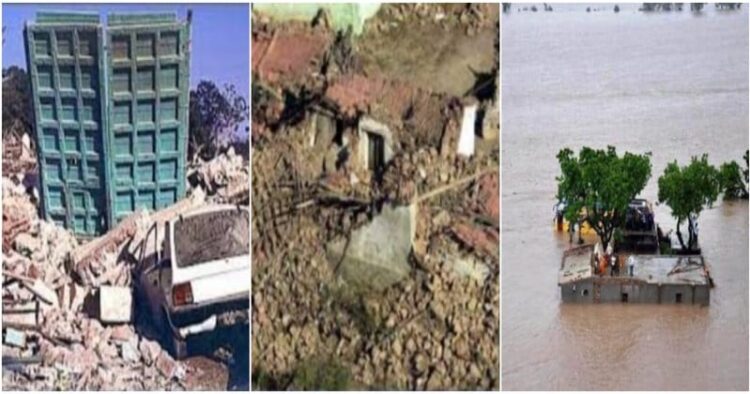Western State Gujarat’s experience in managing earthquakes, tsunamis, cyclones and floods can act as a reference point for States that are prone to natural calamities causing multi-hazardous situations post disasters.
Gujarat is a multi-hazardous prone State in terms of disasters.
In 2001, the State faced a severe earthquake of about 7 magnitudes on the Richter scale that devastated most of Kutch, Morbi, Jamnagar and adjoining parts in Saurashtra.
The State Government formed a State Disaster Management Authority (GSDMA) immediately after 13 days of the occurrence of the worst earthquake in the State’s history on January 26, 2001.
It took almost three years to adopt the Gujarat State Disaster Management Act in 2003. The Act gave the statuary recognition to the Authority.
“Our motto is zero casualty,” said H P Patel, Director of Disaster Management, GSDMA.
The GSDMA works for amendments to the main Act and frames policy guidelines for disaster management. The onus of the down-the-line implementation of the Act lies with the State’s revenue department.
Unlike the Union Government, where the National Disaster Management Authority (NDMA) works under the Home Minister, the State’s disaster authority works under the Revenue Department.
The Gujarat State has the Gujarat Institute of Disaster Management like NDMA has NIDM in Delhi.
“We have been able to evolve a time-tested practical disaster management model under the provision of the State law,” said an official of the GSDMA on the sidelines of the Sixth Edition of the World Congress on Disaster Management (WCDM).
Gujarat also has a State Disaster Response Force with 11 battalions, having 1200 odd rescue personnel. This force is fully equipped to respond to any worst situation.
The SDRF is headquartered in Gandhinagar, and 11 companies are located at critical locations to respond in the nearby area.
Gujarat has identified many of multi-hazardous events as disasters, including man-made disasters like chemical leakage.
The disaster management authority has also developed the Standard Operational Procedure (SOP) for the listed disasters.
“We will be happy to share our experience and SOPs with any State that wants to develop a foolproof disaster management mechanism,” the official said.




















Comments